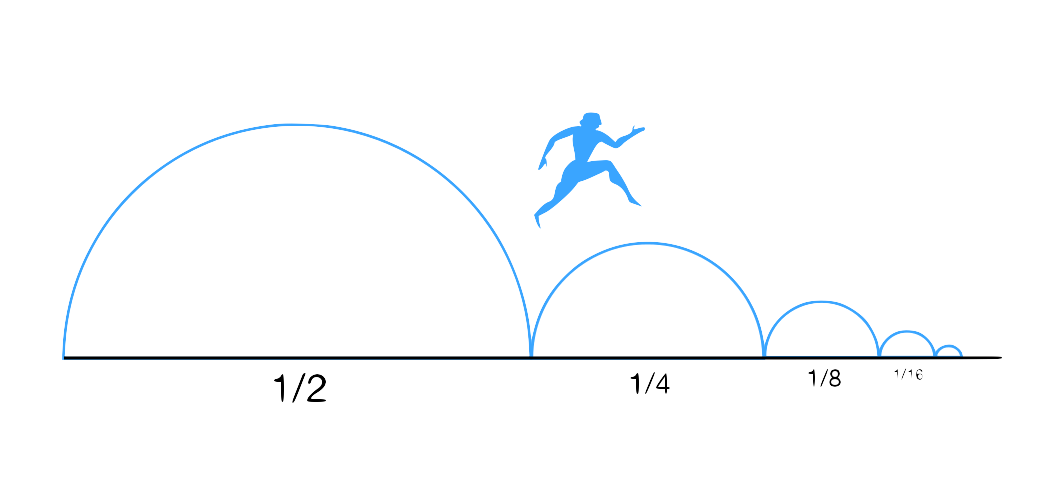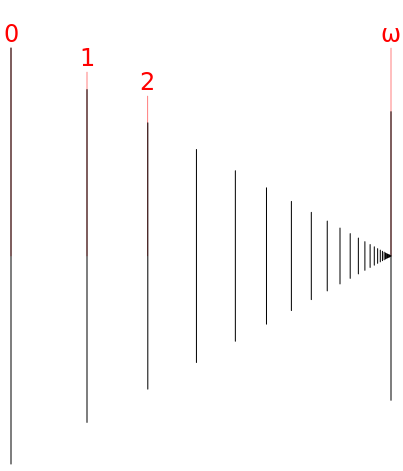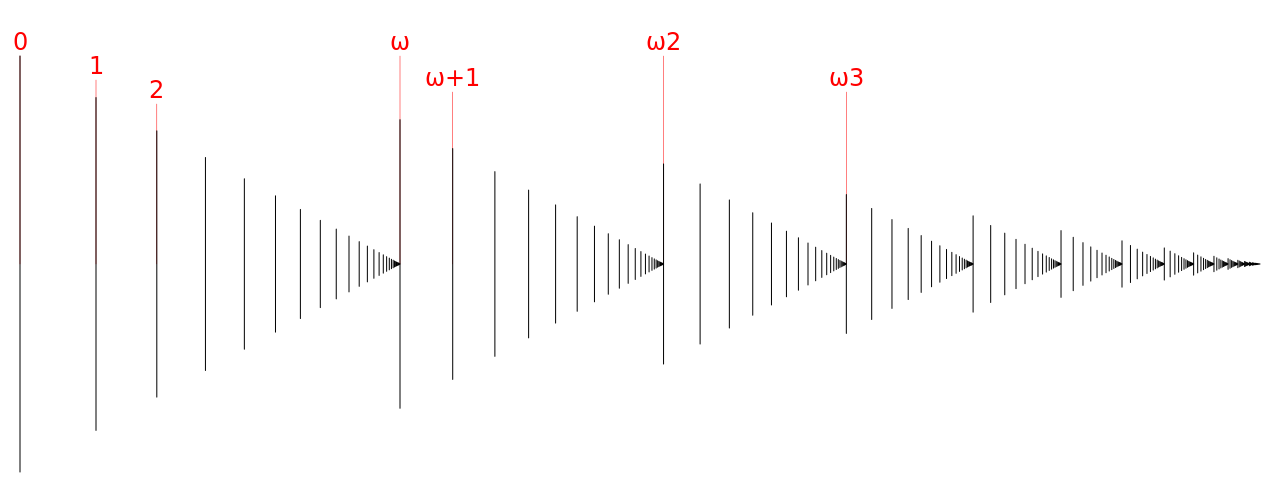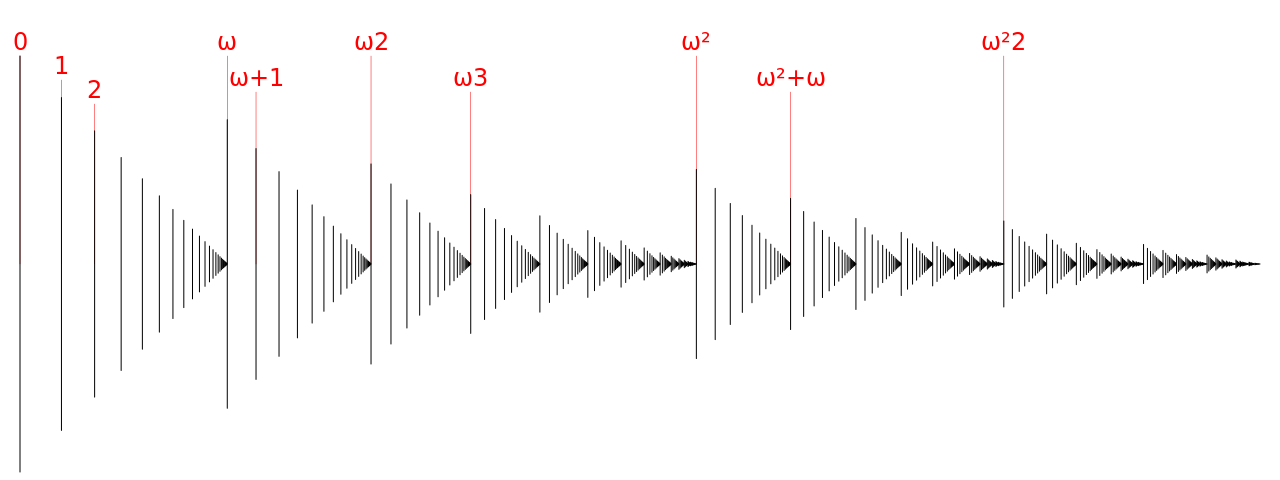# $∞$ Infinity $∞$
###### Younesse Kaddar
I. What is it that we call infinity ?
1) Zeno’s Paradoxes
2) Hilbert’s Hotel
II. How big is it ?
1) Counting to $∞$ : $\aleph_0$
2) Ordinals : $𝜔$
3) Inaccessible cardinals
Zeno’s paradoxes
Zeno of Elea : In a race, the quickest runner can never overtake the slowest.


$⇑$


Actually, modern math provide a solution :
$$\sum_{n>0} \frac{1}{2^n}$$
is convergent
Hilbert's Hotel
- Fully occupied
- Infinitely many rooms
$⟶$ How many additional guests can be housed ?
1) For $n$ new guests : a shift of $n$
2) How about infintely many new guests ?

II. How big is infinity ?
Cardinals : $\aleph_0$
Cardinal : the number of elements of an unordered set
$\downarrow$
If the set of all the integers ($ℕ$) exists, we call $\aleph_0$ its cardinal
> **NB** : *Zeno paradox* ⟹ $\aleph_0$ elements can be "written" within a finite space

Ordinals : $𝜔$
Ordinal : the first label you’ll have to use in order to append 1 element to an ordered set
> **NB** :
> - *For a finite number of elements* : ordinal ⟺ cardinal
> - $\aleph_0 + 1 = \aleph_0$, but $𝜔 + 1 \neq 𝜔$

Axiom of replacement : to infinity and beyond !
Axiom of replacement : if you take an existing set and replace all elements with something else, you’re left with an other existing set.
We’re going to use it to the fullest !
$$𝜔^{2}$$

$𝜔^3$

$𝜔^4$

$𝜔^𝜔$

$𝜔^{5}$

$𝜔^{𝜔^𝜔}$

$𝜔^{𝜔^{𝜔^{\vdots^{𝜔}}}}$
up to
$𝜀_0$
And all that is smaller than …
$\omega_1$
corresponding to the cardinal …
$\aleph_1$
Then …
$𝜔_2, 𝜔_3, \ldots, 𝜔_{𝜔}, \ldots, 𝜔_{𝜔^{𝜔^{𝜔^{\vdots^{𝜔}}}}}, 𝜔_{𝜀_0}, \ldots $
and the corresponding cardinals
$\aleph_2, \aleph_3, \ldots$
Power sets : becoming exponentially big
+
Axiom of replacement
$\downarrow$
We iterate over and over both operations !
But all of that has an order type … so : it remains smaller than …
Inaccessible cardinals
Conclusion




